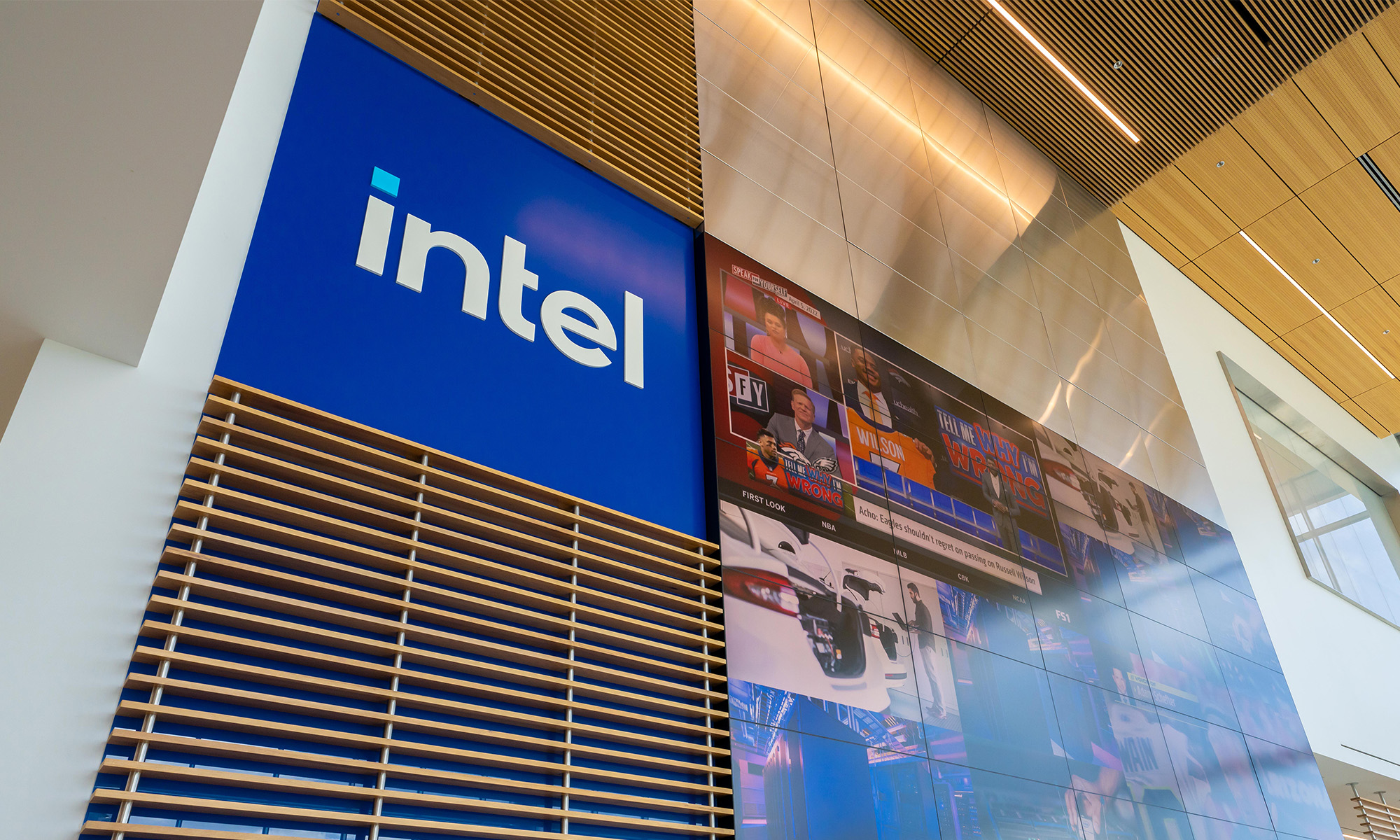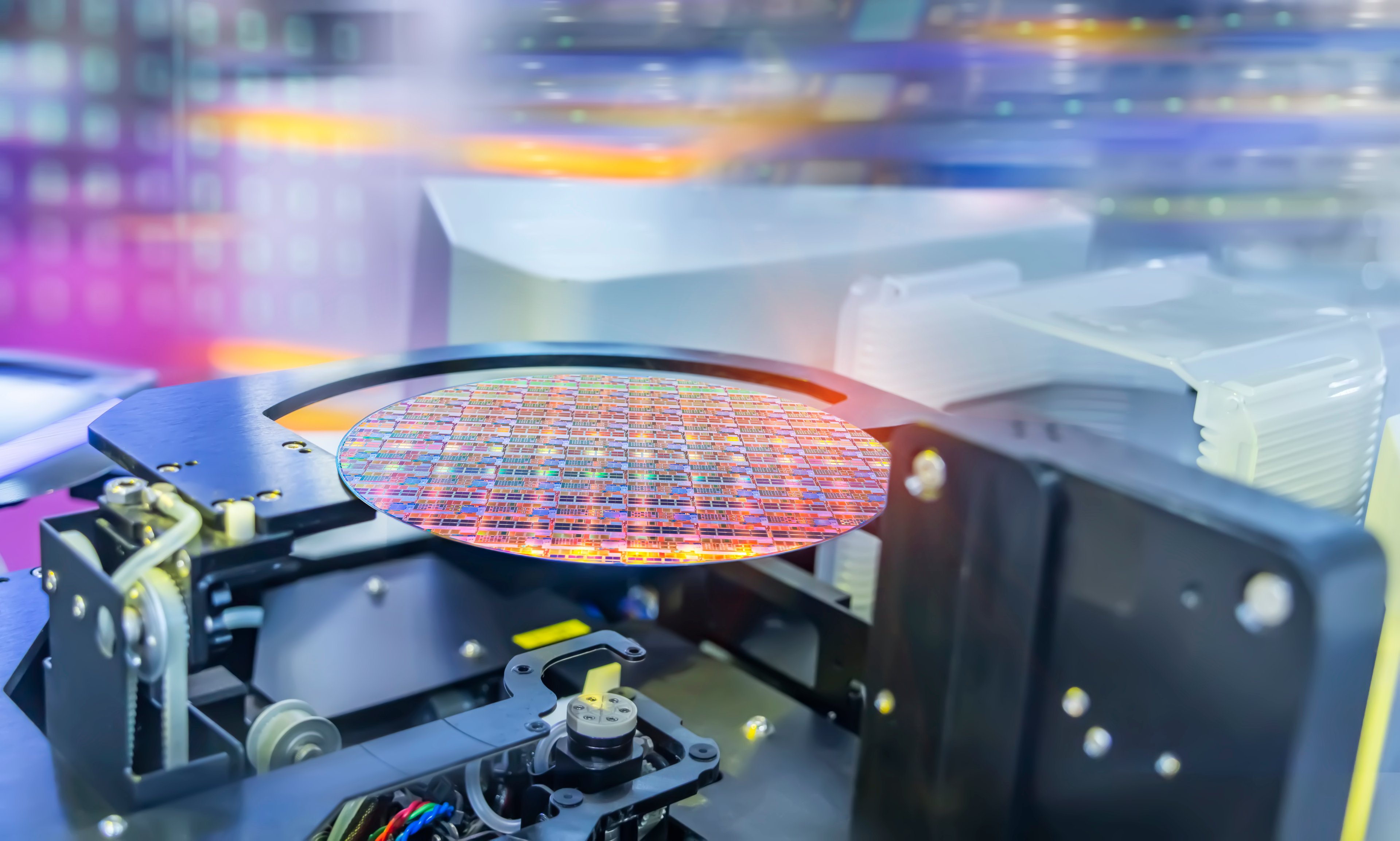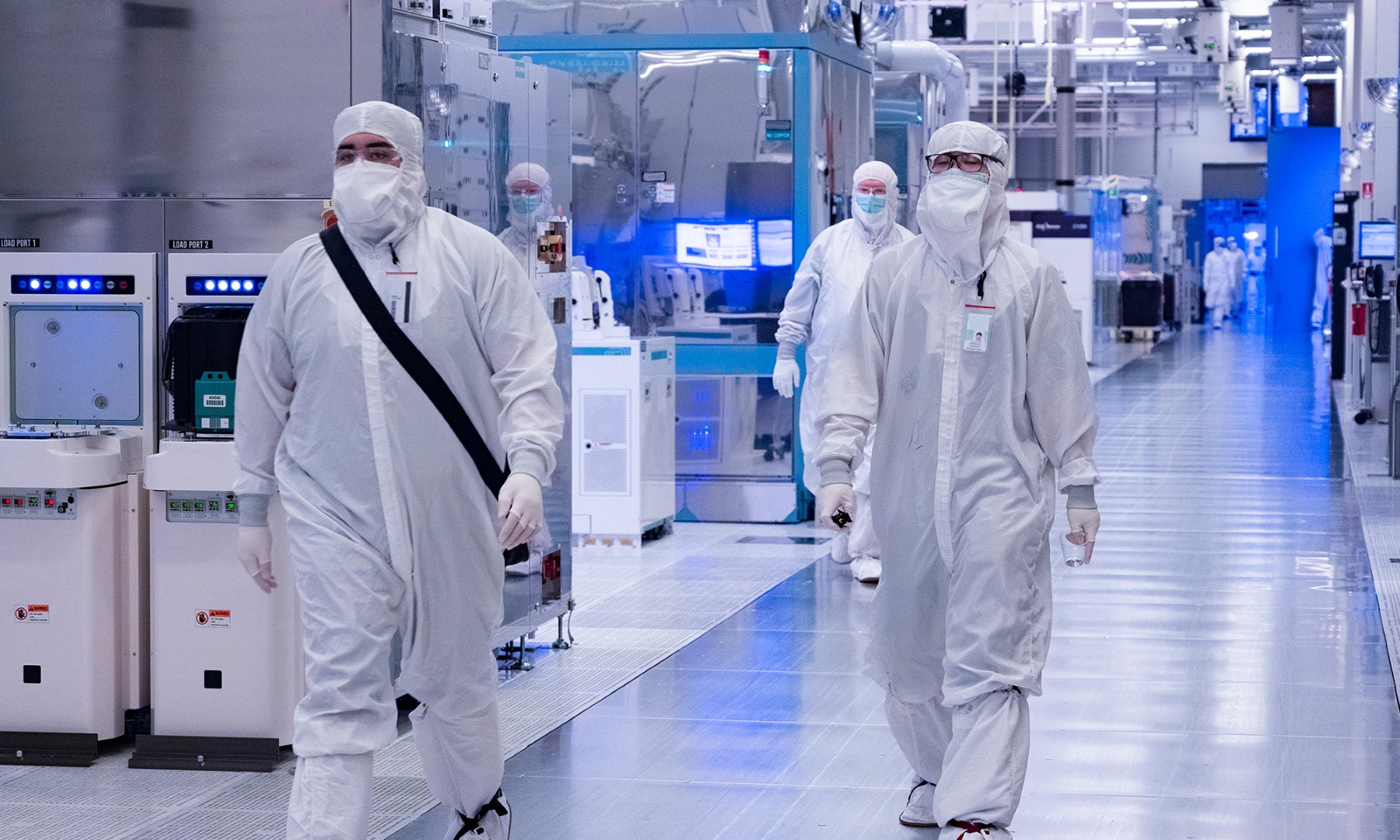Artificial intelligence (AI) couldn't save the tech sector from taking a hit in 2018. Popular AI stocks such as NVIDIA, Alphabet, and Intel (INTC 4.64%) struggled, but investors shouldn't forget that AI is an emerging opportunity. AI-related revenue is predicted to jump from an estimated $7.35 billion in 2018 to nearly $90 billion in 2025 thanks to the growth of self-driving cars, smart devices, and other verticals.
AI stocks that pay a dividend will reward investors with regular payouts while investors wait for the AI opportunity to gain traction. Intel and Microsoft (MSFT 0.83%) are two dividend-paying AI stocks that investors might want to consider.

Image source: Getty Images.
Intel's big chip opportunity
Intel's forward dividend yield of nearly 2.60%, a conservative payout ratio of 36%, and a long dividend payment history make it one of the best dividend stocks in the tech sector. The company has been paying a regular dividend for more than 25 years, and it has consistently increased year after year.
Looking ahead, Intel's foray into AI should act as a catalyst for dividend growth. The company sold $1 billion worth of AI chips last year, and is confident of generating $10 billion in AI chip sales by 2022. That shouldn't be a big deal for Chipzilla, as it pegs its AI-related total available market (TAM) in 2022 at $200 billion.
So Intel needs to corner just 5% of the TAM to realize its ambition. That doesn't look like a big deal, given its strategy of going after lucrative AI-centric markets such as data centers and self-driving cars.
For instance, Intel has made solid advances in the self-driving car space since the Mobileye acquisition. The company is already supplying chips to Alphabet's self-driving subsidiary, Waymo, which is great news as Waymo has begun commercializing its autonomous ride-sharing service in the U.S. What's more, Intel plans to launch a commercial self-driving taxi service in Israel this year, in association with Volkswagen.
Intel will retrofit its self-driving solutions into existing Volkswagen cars to deliver Level 4 or 5 autonomy. Success on this front would encourage Intel to equip carmakers across the globe with its self-driving solutions, so they can attack lucrative markets such as self-driving taxis. That's a big AI-driven opportunity for Intel, as the demand for autonomous taxis is expected to go through the roof.
TechNavio predicts that the global self-driving taxi market will clock a compound annual growth rate of 167% through 2022, paving the way for Intel to sell more autonomous-driving chips and solutions.
An additional $10 billion in AI-related chip revenue by 2022 would increase Intel's top line by a percentage in the mid-teens, given its trailing-12-month revenue of $69 billion. That would eventually help the company boost its bottom line and increase its dividend.
In the end, Intel is a solid bet for investors looking for a mix of AI-driven growth, dividend, and value -- it trades at a forward price-to-earnings ratio of just 10.
Check out the latest Intel earnings call transcript.
Microsoft's cloud play
Microsoft is looking to make AI more accessible through cloud computing. That's a smart thing to do, as AI in the cloud is expected to grow at an annual pace of 50% through 2025, rising from a 1% share of the global cloud computing space (as per the Asia Cloud Computing Association) to 10%.
The good news: Microsoft is making the most of this lucrative opportunity through its Azure cloud service. The company's Azure cloud revenue shot up 76% in the last reported quarter, pushing the company's overall commercial cloud business up by 47% to $8.5 billion.
Looking ahead, Microsoft's cloud business should gain more traction, as the company is packing more AI-related tools into Azure. The software giant recently added a machine learning service to the Azure cloud that can be used by enterprises to simplify AI deployments, allowing them to reduce the time taken to get AI models functioning. Microsoft customers are already using Azure Machine Learning Service to improve assurance (an agreement in which an insurer covers a certain event, such as death) and predict energy demand.
Microsoft's cloud infrastructure is also being tapped by companies developing self-driving cars. This is another big opening for the chipmaker, as the number of cars connecting to the internet will continue to grow.
What's more, Azure is driving Microsoft's profitability, pushing up the margin of its commercial cloud business by 4 percentage points last quarter. With the acceleration of its cloud computing business, Microsoft's bottom-line growth should accelerate. That's probably why analysts expect the company to clock stronger earnings growth, which will help it boost the dividend.
Microsoft carries a decent forward dividend yield of 1.82%, though its payout ratio is high at nearly 70%. But then, the company has increased its dividend for 14 consecutive years, and it should be able to sustain this growth thanks to the catalysts discussed above.
Investors should not forget that AI tech is still young, and it will eventually disrupt our lives in a positive way. That's why betting on the likes of Microsoft and Intel, two companies that have already made a lot of headway in this space and that also pay a dividend, looks like a smart move.
Check out the latest Microsoft earnings call transcript.







